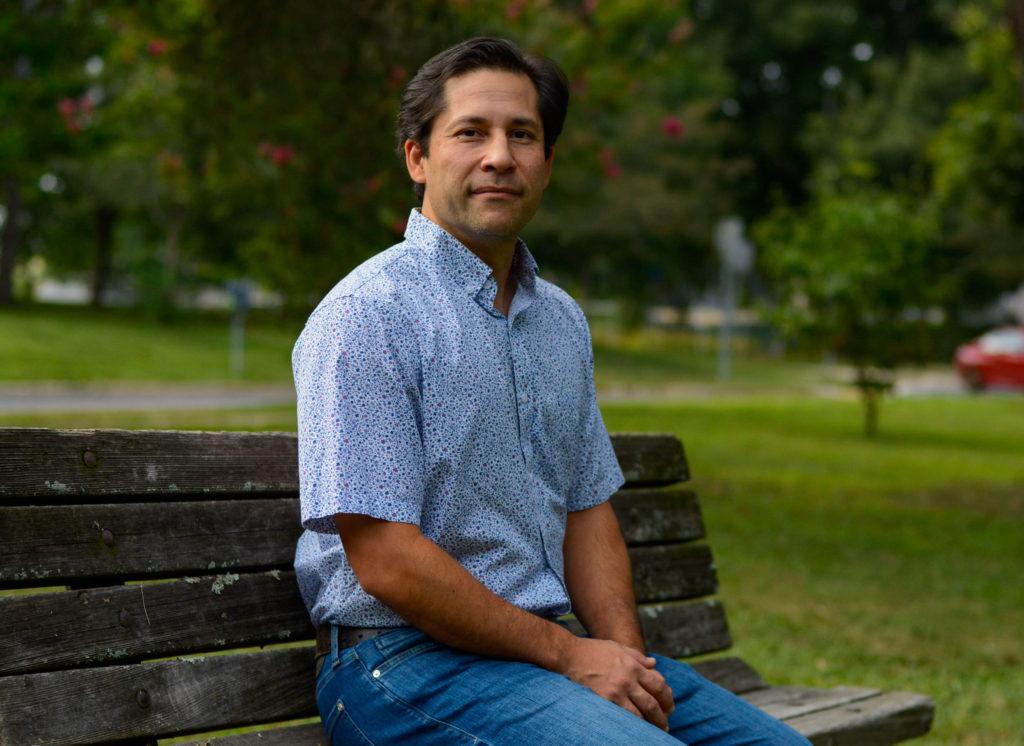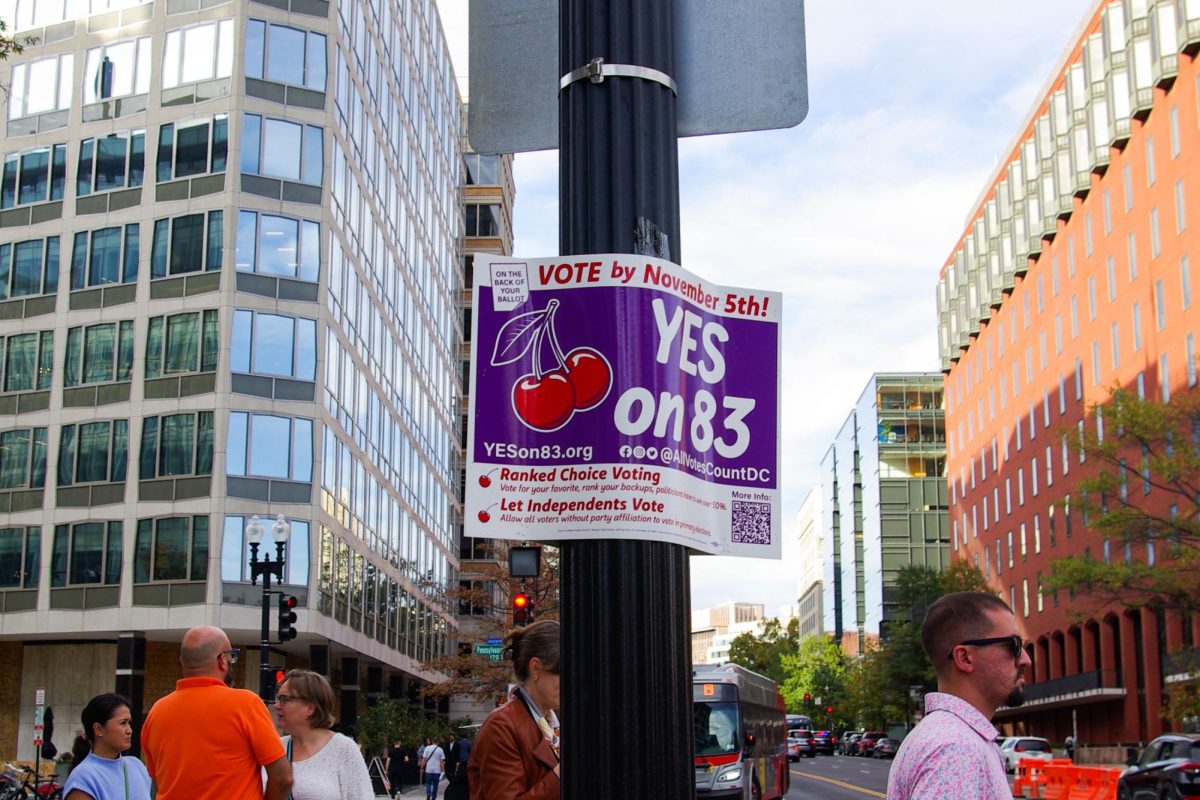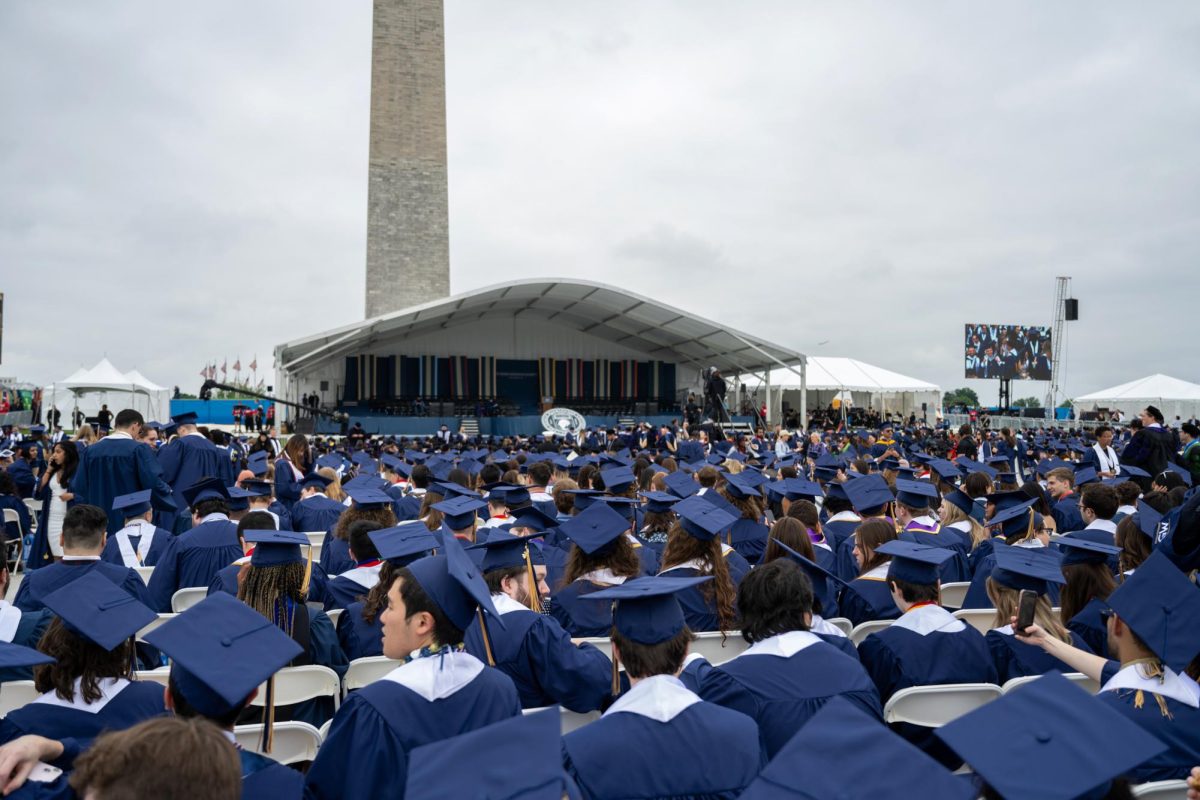A music professor is using his research about disco music’s influence on politics and race to teach two new courses this semester.
Loren Kajikawa, an associate professor of music in the Corcoran School of the Arts and Design, has researched disco’s ability to provide a safety net to Black people and the LGBTQ+ community from historic backlash from white male rock fans since before he arrived at GW in 2018. Now, Kajikawa is teaching the courses Music History Now and Hip Hop Ensemble that cover the history of Western music in the twentieth and twenty-first centuries and allow students to perform hip-hop music and teach them about the community disco created in the 1970s.
“I really started to learn a lot more about how important disco was not just as a musical influence, but as a social force that brought gay people together in a semi-public, semi-private environment where people could be together on the dance floor, dance with whoever they wanted to,” Kajikawa said.
Kajikawa said hip-hop and its politics have roots in disco’s history because both genres of music were centered around DJ-controlled performances in nightclubs that created a community that encouraged political change. He said before he started his research he had a “superficial idea” of disco and decided to include disco’s connection to gay liberation in his teaching.
“A lot of my image of what disco was previous to doing my research was kind of like Saturday Night Fever and John Travolta in a white polyester suit and the Bee Gees,” Kajikawa said.
He said his research on disco got more interesting with time, and he found most people don’t view the genre as “serious music” and often discount it as a fad because it’s associated with disco balls and recreation that people considered more fun and carefree than serious. He said people were not necessarily trying to make political change when listening and dancing to disco, but that activity alone created a “political and social consequence” for those who engaged in it.
Disco music has been used to combat anti-gay chants at concerts, like when rock music group the Foo Fighters drowned out homophobic chants using disco music at one of their Kansas concerts last year.
Kajikawa said disco never really “died” even after the events of Disco Demolition Night in 1979, when shock-jock radio DJ Steve Dahl and Chicago White Sox owner Bill Veek promoted discounted tickets to a White Sox baseball game if fans brought disco records to the game and destroyed their records. The crowd rushed the field at the event and Dahl used explosives to destroy thousands of records and led to an aversion of the word “disco.”
“I think there was a lot of homophobia and racism and misogyny that was involved in this backlash to disco where listeners were unhappy that all of the radio stations and records, that the record industry was putting all this emphasis into disco and moving away from rock and forms of popular music that had kind of centered more of a white male perspective,” Kajikawa said.
Experts in music theory and history said disco music has been an outlet for minorities and LGBTQ+ people to express themselves and find a sense of community.
Louis Niebur, a professor of musicology at the University of Nevado, Reno, said disco emerged as a musical style simultaneously with the rise of gay rights in the wake of the Stonewall riot of 1969. He said disco music in nightclubs, particularly gay clubs, offered LGBTQ+ people a sense of community that hadn’t existed before its rise in popularity.
Niebur said disco faced backlash because people thought it was insincere, too repetitive and popular among female listeners. He said disco artists aimed to make people move their bodies and feel a sense of community on the dance floor.
“Heard in that music is the idea of community, the idea that we’re all coming together in a space, the dance floor, the gay bar, whatever that space is, the discotheque, and we’re sharing a communal experience,” Niebur said.
Evan Ziporyn, a professor of music at the Massachusetts Institute of Technology, said he remembers the Disco Demolition Night to be an “asinine and ignorant event” built on prejudice against the Black musicians and audiences who were associated with disco. He said rock music by Black musicians grew from genres like rhythm and blues but was stolen by white mainstream rock ’n’ roll musicians.
He said one of the purposes of music is to empower people and allow them to identify with a certain genre to build community and associate with a certain artist and message. Ziporyn said new genres, like disco in the 70s, acted as a refuge for people who felt excluded from or marginalized by the mainstream and accepted everyone.
“In any new genre, and this is throughout the world and throughout history, there’s always a kind of refuge for people who feel outside the mainstream or people who have been excluded or people who have been marginalized,” Ziporyn said.







